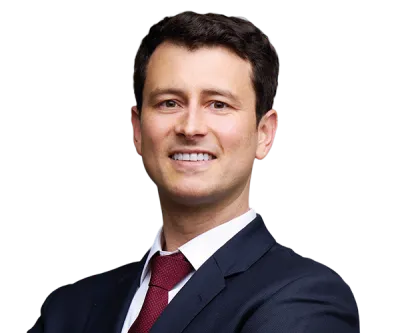The use of Bermuda purpose trusts in enforcements and corporate/debt restructurings
The Bermuda purpose trust is an effective and flexible tool which can be useful in a number of different scenarios. Having been widely used in the private wealth context for some time, Bermuda purpose trusts can also be used in the context of enforcements and corporate/debt restructurings.
Bermuda purpose trusts can be established for specified non-charitable purposes. Notably, a purpose trust does not need to have beneficiaries or hold property. The rule against perpetuities does not apply in Bermuda so purpose trusts can have an unlimited duration.
Bermuda purpose trusts are easy to establish, allow the promoter(s)/settlor(s) to retain a degree of control, and they do not involve any Bermuda regulatory approvals, public filings or registrations. Moreover, there is no stamp duty payable in Bermuda on the trust instrument or on the transfer of non-Bermuda property into the purpose trust e.g. the shares of an exempted Bermuda incorporated company. In our experience, these features make Bermuda purpose trusts an ideal vehicle for use in enforcements and corporate/debt restructurings.
What purposes are allowed?
The trust can be established for any specified, non-charitable purpose, provided that the purpose is sufficiently certain for the trust to be carried out, lawful and not contrary to public policy. Examples include:
- holding the shares in a special purpose vehicle;
- acting as a warehouse vehicle to hold a secured asset prior to enforcement;
- acting as an interim shareholder for a new structure where, for instance, the proposed shareholders do not wish (or are unable) to become shareholders/controllers at the outset; and
- holding unclaimed entitlements under a scheme of arrangement (whether that scheme is carried out under Bermuda law or some other law) or some other restructuring in which not all potential beneficiaries share identifiable on day one.
How is a purpose trust created?
A Bermuda purpose trust can be created in writing i.e. through the execution of a written trust instrument or through the vesting of assets (which can be a nominal sum of money) in the trustee(s) for specific purposes. As mentioned above, there is no need for any Bermuda regulatory approvals or public filings or registrations. Once the trust instrument has been agreed and the relevant parties engaged, the trust can be established on a same-day basis.
What parties are involved?
- Trustee(s): A purpose trust, like any other trust, must have one or more trustees. Carey Olsen Fiduciaries Bermuda Limited regularly assists with the establishment of purpose trusts and acts as trustee of those trusts. Bermuda also has a wealth of other experienced professional trustees who will be able to act as trustee or, if preferred, we can establish a Private Trust Company to act as trustee of the purpose trust.
- Settlor: The original holder of the relevant assets, who establishes the purpose trust by transferring such assets to the trustee(s).
- Enforcer: Bermuda law allows for one or more persons or a committee to be appointed to the role of enforcer. This is an oversight role which seeks to ensure that the trustee(s) administer the trust in line with the intended purposes. However, under Bermuda law there is no requirement for a purpose trust to have an enforcer as the trust can be enforced on the application to the court by any party with a sufficient interest. If an enforcer is desirable, this role can be taken on by the settlor or a third party. The trustee cannot also act as enforcer.
- Other parties: In contrast with comparable vehicles in other jurisdictions, the parties above are the only parties who need to be involved. There is no need for the trust itself to have a “board of directors” or equivalent governing body, no need to involve a notary, and no need to apply to court to establish the purpose trust.
What happens when the purpose is fulfilled?
A purpose trust created for one or more purposes will terminate when those purposes have been fulfilled. Typically, the trust instrument would be drafted to also allow for termination in other circumstances if considered appropriate. Upon termination, the terms of the trust instrument would set out how the remaining trust assets should be dealt with. The tax and other consequences of how any remaining assets in the trust would be dealt with upon termination would need to be considered at the outset in each specific case. Drawing on our experience in this area, we can draft a trust instrument to provide the necessary flexibility with input where appropriate from the promoter/settlor's tax and other advisers.
How much will this cost?
The principal costs will be (a) legal fees for drafting the purpose trust instrument, and (b) trustee fees payable to the trustee(s). In our experience, using a Bermuda purpose trust is more cost effective than many comparable structures in other jurisdictions. Market rates vary, but we can offer competitive rates for the proposed structure with Carey Olsen Fiduciaries Bermuda Limited acting as trustee. We also have strong relationships with other local professional trustees and would be pleased to make any necessary introductions.
Conclusion
We are seeing growing interest in Bermuda purpose trusts and we have extensive experience designing purpose trusts for use by our clients in a number of unusual and innovative situations in the context of enforcements and corporate/debt restructurings. We would be delighted to discuss your needs and suggest options if this might be of interest to you.





